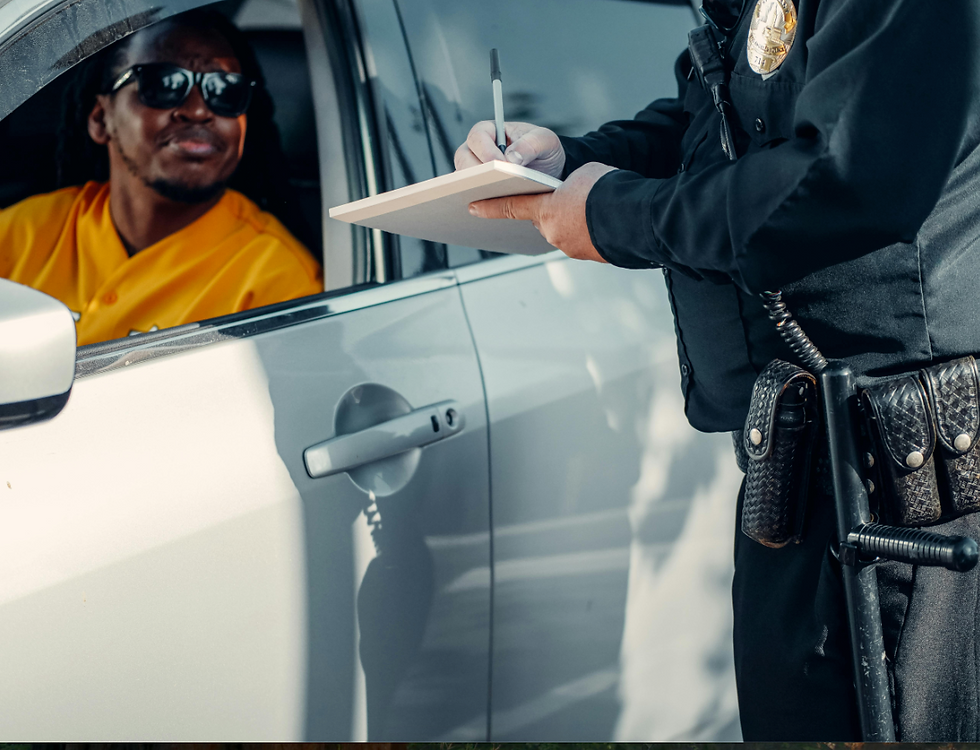COMPANY CAR, PERSONAL LIABILITY: WHO PAYS WHEN YOU'RE PINGED
- Partnered Post
- Aug 20, 2025
- 3 min read

You’re cruising to a client meeting in the company car when that dreaded flash goes off or a blue-and-red light appears in the rear-view mirror.
Now what? Do you pay the fine yourself? Does payroll dock your next salary? Or does the business carry the can because the car is on the fleet logbook? This is where policy meets law, and the details matter.
Start With the Basics: Who’s Actually Liable
With road offences, the law usually cares about the person driving at the time. But camera fines (speed, red light) are first issued to the registered owner of the vehicle.
If that’s your employer, the notice lands with them initially. From there, most jurisdictions allow the owner to nominate the actual driver within a set window.
If you were driving, liability for the fine and any demerit points typically transfers to you once nominated.
The Employer’s Policy vs the Law
Your employment contract or staff handbook often sets out how the company treats infringements in work vehicles.
Some businesses pay minor fines and then recover the cost from the driver; others expect the driver to handle everything directly. Read the policy. Look for three things:
Nomination process: Who fills it in? By when?
Payroll deductions: Are they permitted and under what circumstances?
Repeat-offence thresholds: What happens if you accumulate points?
A tight policy doesn’t override legislation, but it does govern company processes and what you’ve agreed to. If anything conflicts with the law or an award, that’s a red flag worth clarifying before money changes hands.
When a Fine Becomes Something Bigger
Not all infringements are mere admin. Demerit points can threaten your licence. For professional drivers—tradies, sales reps, rideshare side-gigs—losing your licence is effectively losing your income.
That’s when it’s sensible to get early, specific guidance rather than guessing, because deadlines are unforgiving and options shrink fast.
A short consultation with traffic lawyers can help you understand whether you have valid grounds to contest, whether evidence is worth gathering (dashcam footage, GPS logs, job sheets), and what the realistic outcomes look like.
Practical Steps the Moment You’re Pinged
Do these in order. It keeps emotions out and timelines tight.
Record the facts: Date, time, location, who had the keys, purpose of the trip, and any passengers.
Save the evidence: Dashcam, telematics, calendar entries, and emails that verify where you were and why.
Inform your manager or fleet admin promptly: Silence creates suspicion; transparency buys you options.
Check all deadlines: Nomination, payment, internal policy reporting—put them on your calendar right now.
Decide: pay, nominate, or contest: Base this on evidence and risk to your licence, not just the fine amount.
Keep a paper trail: If payroll deductions are proposed, get it in writing and confirm policy compliance.
Special Cases Worth Knowing
Pool cars: If keys are shared, nomination relies heavily on logs or booking systems. Make sure they’re accurate.
Company pays, you keep points: Sounds generous—until premiums rise and procurement reviews car privileges. Understand the long game.
Hire cars and novated leases: Processes differ. Read the hire agreement or lease terms; admin fees can add up quickly.
Interstate travel: Procedures and point transfer rules can vary. Don’t assume identical handling across borders.
Evidence That Helps (and What Doesn’t)
Helpful: dashcam clips, job dispatch records, telematics location data, toll statements, diary entries, and witness notes written close to the event.
Not helpful: vague recollections (“I don’t think it was me”), backdated notes, or generic excuses. Decision-makers care about contemporaneous, corroborated records. So should you.
What Employers Should Do (and You Can Nudge Them)
A smart fleet policy protects both the business and drivers:
Clear nomination workflow: Who does it, and how fast?
Training on high-risk routes: Regular refreshers where cameras are common or limits change abruptly.
Data retention: Keep telematics and dashcam footage long enough to cover notice delays.
Fair escalation: Separate accidental slips from reckless patterns, with proportionate consequences.
Suggesting these improvements isn’t cheeky; it’s risk management. Everyone benefits when the rules are clear.
A Quick Decision Framework
Ask yourself:
Is the evidence clean and clear? If yes, and you were driving, paying promptly can reduce admin pain.
Will points jeopardise your licence or job? If yes, explore legitimate options—review evidence, eligibility for alternatives, or formal representations.
Is there genuine doubt about who drove? Escalate early with logs and telematics; don’t play guesswork games.
Bottom Line
Company car fines are not just “work problems.” They can follow you into your insurance premiums, job security, and future mobility. Get the facts. Follow the policy. Keep evidence.
And when the stakes climb beyond a simple payment, get competent guidance fast. That way, whether you or the business ultimately pays, you’ll handle it with clarity—and you’ll be back on the road with your livelihood intact.









